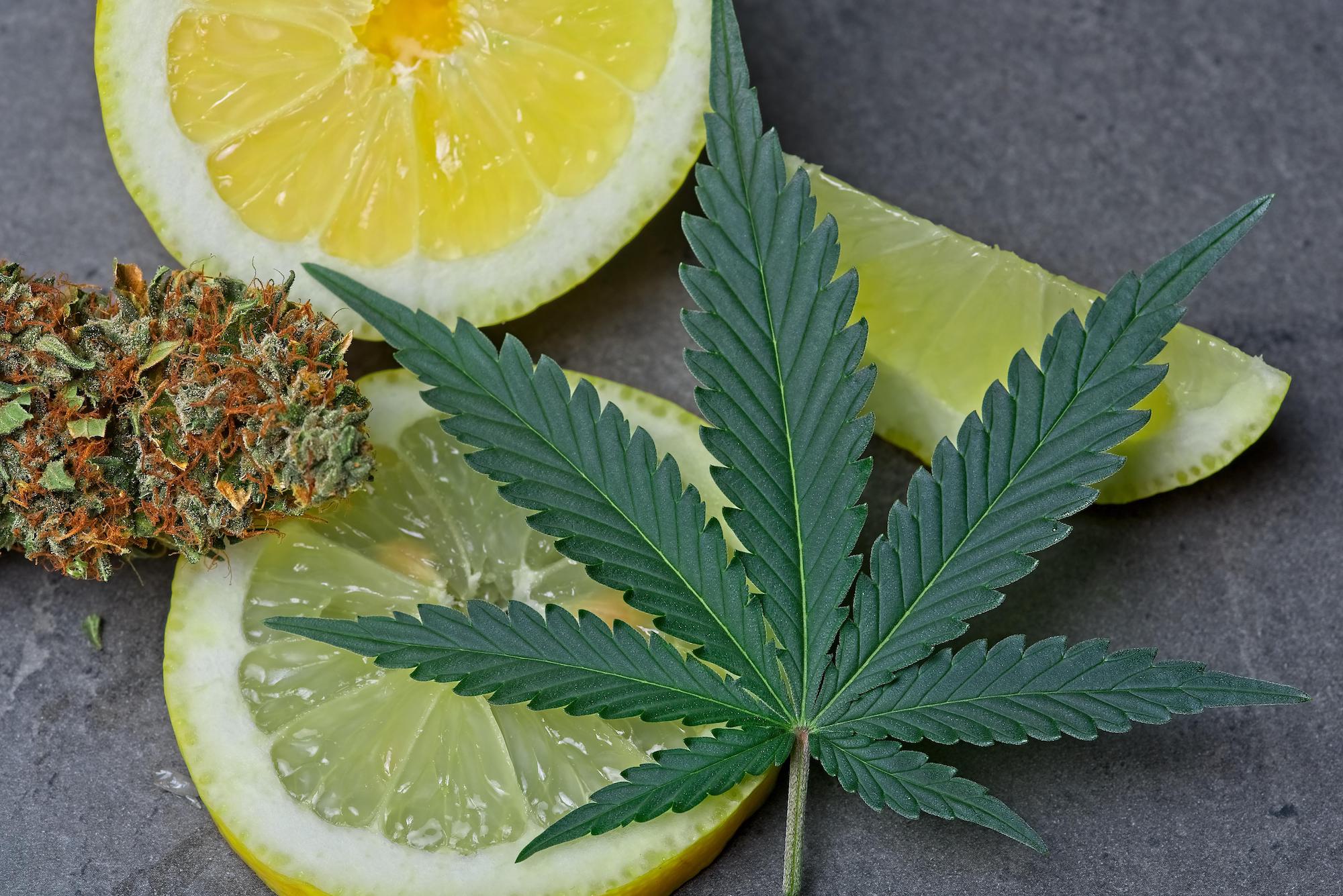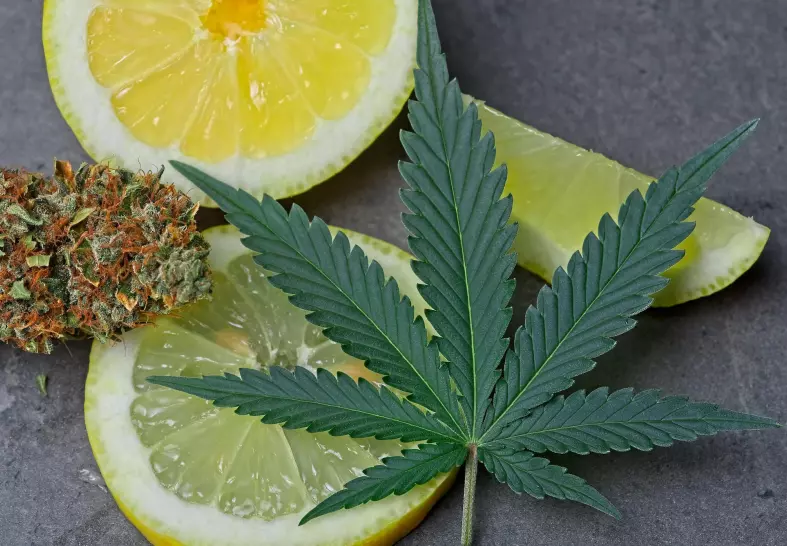You may have heard various things about weed being great for anxiety or bad for anxiety, but the truth is a little more complicated than weed, in general, being good or bad. It depends on the strain! Some weed strains will exert a calming influence on your inner storms, while others exacerbate them. It all boils down to the terpenes and the strain’s cannabinoid chemical composition.
Is Limonene Good For Anxiety?
Limonene comes from exactly where it sounds like: lemons. But it’s also found in other citrus fruit peels like oranges. Essential oils from citrus fruits have long been used to help with anxiety and limonene as a terpene is largely responsible for that.

One study showed that when lab mice ate food with limonene in it, their anxiety was decreased. Another study shows that vaporized limonene had a similar effect on mice, as well.
If you’re looking for a strain of weed to help with anxiety, stress, or depression, a strain that is high in limonene such as Super Lemon Haze or Wedding Cake should do the trick. While it won’t cure any of those issues, it can help relieve some of the symptoms temporarily.
Does Caryophyllene Help With Anxiety?
This terpene naturally occurs in black pepper, hops, cloves, cinnamon, rosemary, and garlic.
The strange thing about beta-caryophyllene is that it interacts with your body’s CB2 cannabinoid receptor even though it’s not a cannabinoid. Wild, right? This terpene hasn’t had much scientific study done on it yet, but it’s gained traction in recent years since its activity on the CB2 receptor was discovered.
A study in 2014 showed that beta-caryophyllene reduced anxiety in mice. Another study in 2020 showed that it had an “anxiolytic-like” effect on mice that was dependent on dosage.
Common strains that are high in caryophyllene are Bubba Kush, Chemdawg, and Master Kush.
Is Myrcene Good For Anxiety?
This is a very common, very potent terpene to use for those who suffer from anxiety. A high percentage of the terpene content in all cannabis is myrcene. It also appears in large concentrations in plants like lemongrass and basil.
Research in 2016 showed that myrcene can be just as much of a sedative as phenobarbitol when it was given to mice at very high doses.
It also interacts with THC in a way that other terpenes don’t; it effectively makes THC produce a stronger high that lasts longer than it normally would. Strains that contain a significant amount of myrcene are said to be more potent than strains that contain less of it.
Popular strains high in myrcene include OG Kush, Agent Orange, Blue Dream, and Grape Ape.
Does Linalool Help Relieve Anxiety?
Even though you may not have heard of this terpene before, you’ve definitely smelled it before, because linalool smells like lavender. Or is it that lavender smells like linalool?
A study performed by researchers from Kagoshima University showed that when mice were subjected to linalool odors, they spent more time in open and lit areas than when they hadn’t been exposed to it. The amount of time spent in those areas was also dependent on how much linalool they had been exposed to.
An important thing to note in the study is that inhaled linalool reduced anxiety without impairing the motor skills of the mice. Linalool that was injected in this study impaired motor skills in a way that was much like alcohol impairment.
Mice that didn’t have a sense of smell didn’t exhibit any response to linalool. That means the scent itself created the effect, not simply the presence of this chemical compound. Additionally, when the mice were treated with flumazenil (a drug that blocks receptors that respond to benzodiazepine), the mice had no reduction in anxiety, either.
Does Trans-nerolidol Help With Anxiety?
A not so commonly known about terpene, trans-nerolidol was found by Whistler Therapeutics to be present in the strains that their study identified as being most useful for anxiety.
Of the 25 strains that they gave people to choose from, 4 were considered to be the most effective:
- Bubba Kush (44 votes)
- Skywalker OG Kush (39 votes)
- Blueberry Lambsbread (36 votes)
- Kosher Kush (33 votes)
What Terpenes Are Bad For Anxiety?
There aren’t any known terpenes that cause anxiety, but they may be heavily associated with strains that aren’t good at relieving it.
The four strains in the Whistler study that were reported as being the least effective for anxiety were:
- Chocolope
- Green Crack
- CBD Shark
- Tangerine Dream
Terpenes associated with strains that are poor at relieving anxiety:
- g-terpinene
- terpinolene
- guaiol
- eucalyptol
- 3-carene
- sabinene hydrate
How most of these terpenes affect anxiety isn’t exactly known, because they were present in such minute quantities in the strains that were investigated.
Guaiol, however, was associated with three of the four least effective strains, but wasn’t found in any of the most effective strains. Whether guaiol simply doesn’t reduce anxiety or if it actively promotes anxiety isn’t known.
Chocolope was reported by participants to be the least effective strain for anxiety. It may have failed to reduce anxiety because its predominant terpene is terpinolene.
There aren’t any proven terpenes that can induce anxiety, but a strain with too much THC in it can have anxiolytic effects, particularly if you’re already prone to anxiety. THC elevates the blood pressure and heart rate, so a high THC strain isn’t generally what you’re looking for if you’re anxious about something. A solid, high CBD strain should do the trick if you need to relax.
